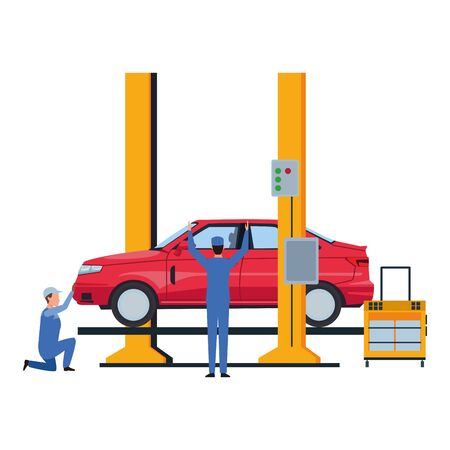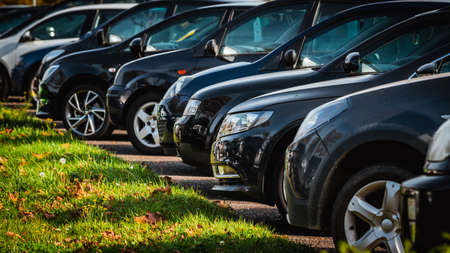Introduction to UK Family Estate Cars
When it comes to practical family motoring in the UK, estate cars have long held a cherished position on British roads. Their enduring popularity is no accident; these vehicles are celebrated for offering a winning combination of spacious interiors, versatile boot space, and understated style that suits the needs of growing families as well as professionals who require extra room for lifestyle gear or business equipment. Unlike SUVs, estates tend to offer superior fuel efficiency and a more car-like driving experience, making them a practical choice for navigating everything from urban school runs to longer motorway journeys.
What makes estate cars such a family favourite in Britain? The answer lies in their clever blend of features: plenty of room for passengers and luggage, flexible seating configurations, and often lower running costs compared to larger MPVs or 4x4s. Modern estate cars are engineered with an emphasis on comfort, safety, and technology, ensuring that families don’t have to compromise on essentials like advanced driver assistance systems or infotainment options.
For those considering an estate car as their next family vehicle, several key factors should be weighed carefully:
| Key Consideration | Why It Matters |
|---|---|
| Space & Boot Capacity | Essential for transporting buggies, shopping, sports kit, and even pets. |
| Running Costs | Includes fuel economy, insurance groupings, tax bands, and service intervals. |
| Everyday Practicality | Flat load bays, split-folding rear seats, low loading lips and wide-opening doors make daily life easier. |
| Value for Money | A competitive purchase price plus strong resale values help maximise your investment. |
| Driving Experience | Smooth ride comfort and nimble handling are important for both city and motorway use. |
This guide will benchmark the top 10 family estate cars currently available in the UK market—comparing them across these vital criteria to help you find the perfect fit for your household’s needs.
Best for Space: Cabin and Boot Room Compared
When it comes to family estate cars in the UK, interior space and boot capacity are paramount. British families often juggle prams, sports kit, shopping bags, and sometimes even a four-legged friend or two. Therefore, ample cabin room and a generously sized boot can make all the difference on the school run or a weekend getaway. In this section, we provide a detailed comparison of the top 10 family estate cars, focusing on those models that truly deliver when it comes to accommodating both passengers and cargo.
Cabin Comfort: Headroom and Legroom
Comfortable journeys start with sufficient space for all occupants. Here’s how our leading contenders stack up for front and rear headroom, as well as legroom:
| Model | Front Headroom (mm) | Rear Headroom (mm) | Rear Legroom (mm) |
|---|---|---|---|
| Skoda Superb Estate | 1000 | 980 | 1040 |
| Volkswagen Passat Estate | 985 | 975 | 1015 |
| Ford Mondeo Estate | 990 | 970 | 990 |
| Toyota Corolla Touring Sports | 965 | 940 | 880 |
Analysis:
The Skoda Superb Estate stands out with its class-leading rear legroom, making it ideal for growing families or taller teenagers. The Volkswagen Passat is also impressively spacious, ensuring comfort on longer journeys.
Boot Capacity: Ready for Prams, Luggage & Pets
The boot is arguably the most crucial area in any family estate. From bulky pushchairs to suitcases for a week at Center Parcs, here’s how the best contenders fare:
| Model | Boot Capacity (Seats Up) Litres | Boot Capacity (Seats Down) Litres |
|---|---|---|
| Skoda Superb Estate | 660 | 1950 |
| Mazda 6 Tourer | 522 | 1664 |
| Kia Ceed Sportswagon | 625 | 1694 |
| Toyota Corolla Touring Sports | 598 | 1606 |
Cargo Practicality:
The Skoda Superb again leads with a massive 660-litre boot (seats up), swallowing up prams and pets with ease. Even with seats folded down, it offers van-like space—ideal for those who need flexibility. The Kia Ceed Sportswagon is also highly competitive here, offering excellent value for its load-lugging capability.

3. Practicality and Everyday Usability
When it comes to selecting the best family estate cars in the UK, practicality sits at the very heart of decision-making. British families require vehicles that can effortlessly adapt to daily routines, from the school run and weekly shop to weekends away or even a spontaneous tip run. The top contenders in our list shine by delivering features that make everyday life easier, safer and more comfortable.
Flexible Seating Arrangements
Modern estates offer versatile seating configurations, allowing you to fold down rear seats flat for maximum boot space or split them for a mix of passengers and cargo. Many models now boast quick-release mechanisms, adjustable backrests and sliding rear benches for enhanced flexibility.
| Model | Rear Seats Fold Flat? | Split-Fold Ratio | Sliding Rear Bench |
|---|---|---|---|
| Skoda Superb Estate | Yes | 60:40 | No |
| Volkswagen Passat Estate | Yes | 40:20:40 | No |
| Toyota Corolla Touring Sports | Yes | 60:40 | Yes (selected trims) |
| Kia Ceed Sportswagon | Yes | 60:40 | No |
| Ford Focus Estate | Yes | 60:40 | No |
Ease of Loading and Boot Access
A low loading lip, wide tailgate opening and hands-free powered boots are highly valued by families juggling buggies, sports kit and shopping bags. Many estates also feature adjustable boot floors and clever hidden compartments, making it easier than ever to keep muddy wellies separate from picnic hampers.
| Model | Powered Boot Lid? | Adjustable Boot Floor? |
|---|---|---|
| Skoda Octavia Estate | Yes (optional) | Yes |
| Porsche Taycan Sport Turismo | Yes (standard) | No |
| Dacia Jogger Estate | No | No |
Clever In-Cabin Storage Solutions
The devil is in the detail when it comes to storage. Top estate cars provide deep door bins for water bottles, slide-out trays under seats, large gloveboxes and flexible central consoles for stashing everything from sunglasses to tablets. Isofix anchor points on the outer rear seats are a must-have for those with young children.
Family-Friendly Technology Integration
The latest estates blend convenience with connectivity, offering intuitive infotainment systems compatible with Apple CarPlay and Android Auto as standard on most models. USB charging points front and rear, wireless phone charging pads and voice-activated controls help ensure all occupants stay connected – critical on long journeys across the UK’s motorway network.
The Verdict on Everyday Practicality for UK Families:
The finest family estate cars distinguish themselves through thoughtful design touches that support real-world use. Flexible seating, easy boot access, abundant storage solutions and smart technology integration combine to deliver an ownership experience tailored to the demands of British family life.
4. Performance, Economy, and Driving Experience
When selecting a family estate car in the UK, performance and efficiency are just as crucial as space and practicality. British families expect their estate cars to handle the rigours of urban commutes, motorway cruising, and the occasional jaunt through winding country lanes. This segment provides a critical review of engine options, fuel economy across petrol, diesel, and hybrid variants, and evaluates ride comfort as well as overall driving dynamics on typical UK roads.
Engine Choices: Power Meets Efficiency
Today’s top family estates offer a variety of powertrains to suit different needs and budgets. Most models come with an array of efficient petrol and diesel engines, while hybrids are increasingly popular for those prioritising low emissions and running costs. Here’s a quick comparison of engine options available in our top picks:
| Model | Petrol Engines | Diesel Engines | Hybrid/Plug-in Hybrid |
|---|---|---|---|
| Ford Focus Estate | Yes (EcoBoost) | Yes (EcoBlue) | No |
| Skoda Octavia Estate | Yes (TSI) | Yes (TDI) | Yes (iV PHEV) |
| Toyota Corolla Touring Sports | No | No | Yes (Full Hybrid) |
| Volkswagen Passat Estate | Yes (TSI) | Yes (TDI) | Yes (GTE PHEV) |
| Kia Ceed Sportswagon | Yes (T-GDi) | No | Yes (PHEV) |
Fuel Economy: Keeping Running Costs Low
The cost of motoring remains a key consideration for British families. Estate cars are expected to deliver impressive fuel economy whether you’re racking up miles on the M6 or doing the school run in town. Typically, modern diesels still lead in outright motorway efficiency—often achieving 50-65mpg—while petrol engines have made significant progress thanks to turbocharging technology. Hybrids and plug-in hybrids now offer substantial real-world savings, particularly for urban dwellers.
| Model | Best Combined Fuel Economy (mpg) |
|---|---|
| Toyota Corolla Touring Sports Hybrid | Up to 62mpg |
| Skoda Octavia Estate Diesel | Up to 65mpg |
| Kia Ceed Sportswagon PHEV | (Electric + Petrol) Up to 200mpg* |
| Ford Focus Estate EcoBoost Petrol | Around 47mpg |
| Volkswagen Passat GTE PHEV | (Electric + Petrol) Up to 200mpg* |
Ride Comfort: Tailored for British Roads
The UK’s varied road surfaces—from smooth tarmac motorways to patchy B-roads—demand estates with supple suspension and good noise insulation. Models like the Skoda Superb Estate and Volkswagen Passat excel at ironing out rough surfaces, making them ideal for long-distance travel. Meanwhile, the Ford Focus impresses with its agile handling without sacrificing comfort—a boon for navigating congested city streets or tight village lanes.
Driving Dynamics: Engaging Yet Relaxed Motoring
Estate cars are no longer synonymous with dull handling. Many manufacturers have invested heavily in chassis development, resulting in estates that feel composed through bends and stable at speed. For example, the BMW 3 Series Touring remains the benchmark for driver engagement, while the Peugeot 508 SW offers surprising poise alongside French-style comfort. Whether you prioritise sharp steering or a soft ride, there’s an estate car that matches your preference.
The Verdict on Performance and Practicality Balance
The best family estates strike a fine balance between efficient motoring, ride comfort suited to British conditions, and enjoyable driving characteristics. With advanced engine technology and thoughtful chassis engineering across the board, today’s estates deliver an experience that pleases both drivers and passengers alike—making them a top choice for families who refuse to compromise on performance or practicality.
5. Value for Money: Pricing and Running Costs
When considering a family estate car in the UK, value for money is often at the forefront of any buying decision. Beyond the initial purchase price, families must weigh up ongoing expenses such as insurance, road tax, and real-world running costs. In this section, we break down the core financial considerations to help budget-conscious families make informed choices.
Purchase Price Comparison
| Model | Starting Price (RRP) |
|---|---|
| Skoda Octavia Estate | £26,000 |
| Ford Focus Estate | £25,500 |
| Kia Ceed Sportswagon | £24,500 |
| Toyota Corolla Touring Sports | £29,000 |
| Volkswagen Passat Estate | £33,000 |
The above table showcases that there’s a broad spectrum in initial outlay, with practical models like the Kia Ceed Sportswagon offering an attractive entry point for cost-conscious buyers.
Insurance Groups
Insurance costs vary widely and are heavily influenced by factors such as engine size and trim level. The majority of top family estates fall between groups 12 and 22, making them relatively affordable compared to SUVs or luxury saloons. For instance, the Ford Focus Estate can be found as low as group 10 in its base trim, while more powerful variants like the Volkswagen Passat Estate may reach group 23.
Road Tax (VED)
| Model | CO2 Emissions (g/km) | First-Year Road Tax |
|---|---|---|
| Toyota Corolla Touring Sports (Hybrid) | 102 | £170 |
| Kia Ceed Sportswagon (Diesel) | 117 | £190 |
| Skoda Octavia Estate (Petrol) | 121 | £220 |
If you’re looking for long-term savings, hybrid and lower-emission petrol or diesel options can yield significant reductions in annual VED costs.
Real-World Running Costs
- Fuel Economy: The Toyota Corolla Touring Sports hybrid leads with over 60mpg in real-world driving, followed closely by the Skoda Octavia diesel.
- Main Dealer Servicing: Expect annual servicing bills ranging from £180 for basic models to £350+ for higher-end estates.
- Tyres & Consumables: Family estates generally use mid-range tyres (£70–£120 each), though larger wheels on sportier trims will increase costs.
- MOT & Repairs: Estates based on mainstream hatchbacks (like the Ford Focus) typically have lower repair bills than premium brands.
The combination of solid fuel economy figures, reasonable insurance groups and competitive servicing rates makes these estate cars especially appealing to families seeking both versatility and value. Factoring in depreciation — where models like the Skoda Octavia and Kia Ceed tend to hold their worth well — ensures that long-term ownership is just as financially sensible as day-to-day running costs.
6. Reliability and Safety Credentials
When it comes to choosing a family estate car in the UK, reliability and safety are paramount. British families expect their vehicles to not only be practical but also robust and secure on the roads. In this section, we provide a detailed assessment of each of our top 10 estate cars, focusing on advanced safety technology, Euro NCAP ratings, and overall build quality, all with reference to UK-specific standards and driving conditions.
Comprehensive Safety Technologies
Modern estate cars come equipped with a range of driver assistance features designed for the unique demands of British roads—think adaptive cruise control for motorway commutes, lane-keep assist for narrow country lanes, and autonomous emergency braking (AEB) for unpredictable city traffic. The table below summarises key safety technologies found in our top picks:
| Model | Autonomous Emergency Braking (AEB) | Lane Assist | Blind Spot Monitoring | Adaptive Cruise Control |
|---|---|---|---|---|
| Skoda Superb Estate | Standard | Optional | Optional | Standard |
| Ford Focus Estate | Standard | Standard | Optional | Optional |
| Toyota Corolla Touring Sports | Standard | Standard | Optional | Standard |
| Kia Ceed Sportswagon | Standard | Optional | Optional | Optional |
Euro NCAP Ratings: The Gold Standard in Safety Assessment
The Euro NCAP (European New Car Assessment Programme) rating is a crucial benchmark for UK buyers. All ten estates in our list have undergone rigorous crash testing, ensuring they meet or exceed stringent European and British safety requirements. Here’s how they stack up:
| Model | Euro NCAP Rating (Stars) |
|---|---|
| Skoda Superb Estate | 5 |
| Ford Focus Estate | 5 |
| Toyota Corolla Touring Sports | 5 |
Build Quality and Long-Term Reliability for UK Conditions
The durability of an estate’s chassis and interior materials is essential for coping with the UK’s variable climate—rain, grit from salted winter roads, and frequent stop-start urban journeys can all take their toll. Brands like Skoda and Toyota have established reputations for bulletproof reliability and hard-wearing interiors, making them particularly appealing to families prioritising longevity. Meanwhile, Ford’s recent advances in galvanisation help protect against rust—a common concern given Britain’s wet weather.
A Balanced Perspective on Safety & Trustworthiness
No estate car is perfect, but those featured in our top 10 consistently deliver impressive reliability records and cutting-edge safety features tailored for British drivers. For peace of mind on the school run or during long-distance getaways, these estates offer some of the safest motoring experiences available on the UK market today.
7. Final Recommendations and Buying Advice
After a comprehensive comparison of the top 10 family estate cars available in the UK, it’s clear that British families have a wealth of options when it comes to space, practicality, and value. Below is a concise round-up of which estate cars stand out for different family needs, alongside essential buying advice for both new and approved used purchases, as well as upcoming models worth keeping an eye on.
Top Picks for UK Families
| Model | Strengths | Best For |
|---|---|---|
| Skoda Superb Estate | Class-leading boot space, comfort, affordable running costs | Larger families seeking maximum room |
| Ford Focus Estate | Engaging drive, competitive pricing, practical layout | Young families and commuters |
| Toyota Corolla Touring Sports | Hybrid efficiency, reliability, low emissions | Eco-conscious urban families |
| Volvo V60 | Scandinavian safety features, premium finish | Families prioritising safety and style |
| Kia Ceed Sportswagon | Generous equipment, industry-leading warranty | Value-focused buyers wanting peace of mind |
New vs Approved Used: What to Consider?
- New: Latest technology, full manufacturer warranty, customisation options. However, expect higher initial depreciation.
- Approved Used: Significant cost savings, manufacturer-backed inspections and warranties, immediate availability. Best suited for those seeking value without compromising reliability.
When Should You Wait for Upcoming Models?
If you’re keen on future-proofing your purchase with next-generation tech or improved hybrid powertrains, several new estate models are due in the coming year. Notably, the all-new Peugeot 308 SW and Volkswagen Passat Estate promise enhanced infotainment and electrified engine options. If these features are priorities, waiting could be worthwhile.
Final Word for British Buyers
The ideal family estate car in the UK balances spaciousness with efficient performance and running costs. Urban dwellers may favour hybrids like the Toyota Corolla Touring Sports for lower emissions zones, while rural families might opt for estates with all-wheel drive or larger boots. Regardless of whether you buy new or approved used, always insist on a full service history and consider long-term warranty coverage—especially important given Britain’s unpredictable weather and varied road conditions. By aligning your choice with your lifestyle and budget, you’ll find an estate car that keeps pace with your family’s changing needs.


